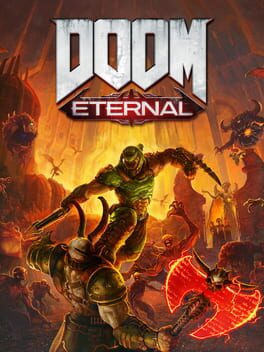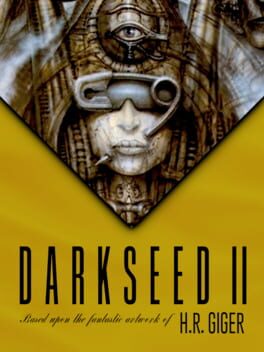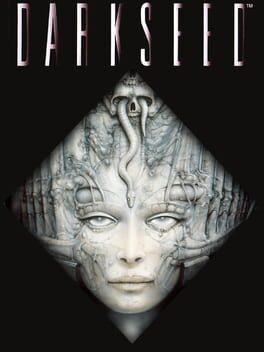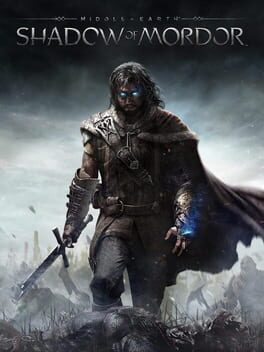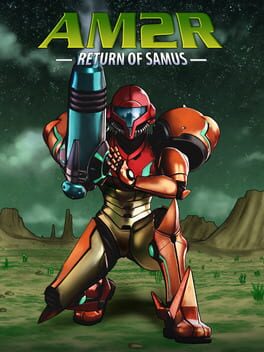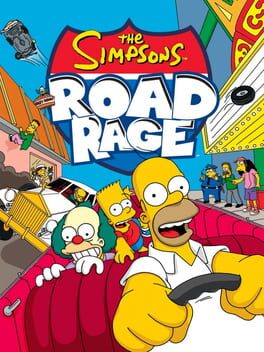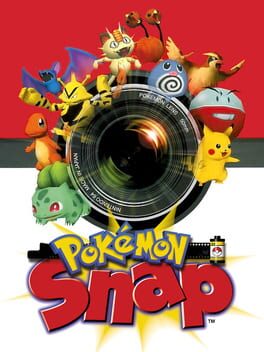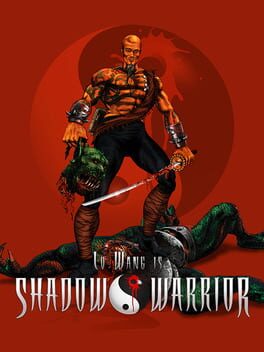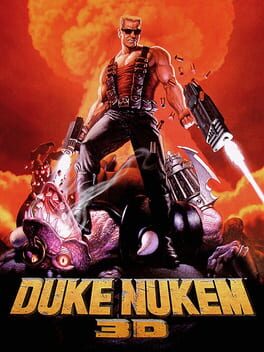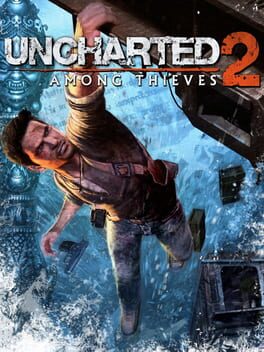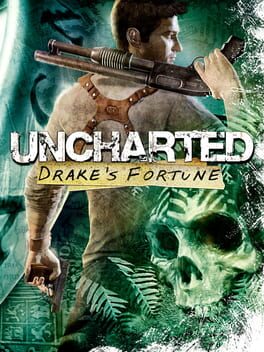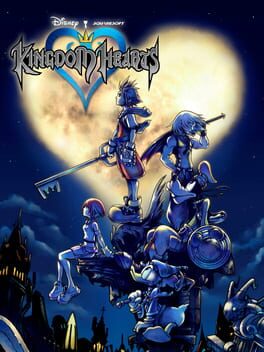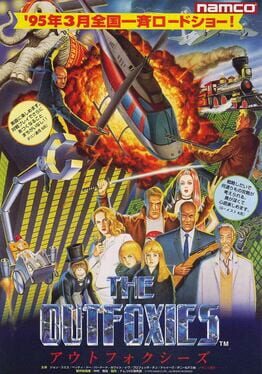2017
It's probably the best-feeling MMO out there. Unfortunately, that's a little bit like beating all of your nephews and nieces in an arm-wrestling tournament. A deeply underwhelming game in every aspect, especially storytelling. I put 80 hours into this game because my friends liked it, and I would do it again. As far as a game that you play in the background while you shoot the shit, you can do a lot worse. However, my friends don't like it anymore, so I'll never touch it again. If you think the shooting in Destiny is mechanically engaging, you need to play more shooters.
2020
As a Doom superfan, it goes without saying that I had very high hopes for Eternal, and those hopes were ground up and discarded by about the game's halfway point. It's only slight hyperbole to say that I disagree with almost every aspect of Doom Eternal's design.
It's clear from the very first moments of the game that the designers took all the wrong lessons from Doom 2016, piling on more and more plates for the player to spin. The shooter series made famous for its precise but simple gameplay now has meters and resources counts fully colonizing its UI. Even your ability to avoid attacks (here embodied not from Doom-style skillful WASDing, but through a character-action game style SHIFT TO DODGE) is tied to a resource you must keep track of during every fight.
This visual overload is a reminder of a simple fact: Doom Eternal desperately wants to be a character action game, but it has no idea how to make that work in a first-person setting. Eternal's entire structure is built on an increasingly contrived rock-paper-scissors-lizard-Spock strength and weakness matrix that the game's tutorials strongly encourage. Shoot the neck cannon off of the Arachnotron with your precision rifle, or blow it off with your shotgun grenade. Now do that 20 times in an hour, and apply that to more than half the monsters in the game. Oh, and if you mess it up, you take massive damage. When the game really gets going, it feel like you're managing a spreadsheet that 3 people are editing at once, not battling the hordes of the undead. Are you having fun yet?
Even if Doom Eternal successfully transformed the franchise into a character-action game, its blueprint would still fail. This is a game that has zero conception of positive reinforcement: it's all electric fences and boxed ears, especially on the higher difficulties. I very rarely felt like the badass Doom Slayer ripping and tearing his way through hordes of undead; I felt like a scared puppy running away, trying to remember which of my 17 tools works effectively against Enemy Z. Even the Glory Kill animations feel hasty and uninspired, as though the game's trying to rush you to the next challenge. Doom Eternal wishes that it had the courage to give players the catharsis that you feel from a Bayonetta Torture Attack, or the triple-S ranking from a Devil May Cry combo.
To me, character-action games are at their best when they give you the freedom to express yourself through their mechanics, to develop your own playstyle. Doom Eternal seems absolutely opposed to that perspective. There are many interesting weaknesses and strategies that players have found to deal with some of its more obnoxious enemies, particularly the Marauder, but the game does a terrible job of encouraging that sort of experimental play. Doom Eternal wants to be a violent playground, but it actually feels like a rickety Rube Goldberg machine that might fail at any juncture. You never feel comfortable enough to try a new strategy; the game is always pushing, pushing, pushing you toward its intended design, and it really dislikes when you push back. Doom Eternal wants you to play it its way, and you're going to get chewed up and spit out if you don't play by its rules, and that's really the bottom line. It's great if you're willing to do that, but I think I'll just stick to ULTRAKILL.
It's clear from the very first moments of the game that the designers took all the wrong lessons from Doom 2016, piling on more and more plates for the player to spin. The shooter series made famous for its precise but simple gameplay now has meters and resources counts fully colonizing its UI. Even your ability to avoid attacks (here embodied not from Doom-style skillful WASDing, but through a character-action game style SHIFT TO DODGE) is tied to a resource you must keep track of during every fight.
This visual overload is a reminder of a simple fact: Doom Eternal desperately wants to be a character action game, but it has no idea how to make that work in a first-person setting. Eternal's entire structure is built on an increasingly contrived rock-paper-scissors-lizard-Spock strength and weakness matrix that the game's tutorials strongly encourage. Shoot the neck cannon off of the Arachnotron with your precision rifle, or blow it off with your shotgun grenade. Now do that 20 times in an hour, and apply that to more than half the monsters in the game. Oh, and if you mess it up, you take massive damage. When the game really gets going, it feel like you're managing a spreadsheet that 3 people are editing at once, not battling the hordes of the undead. Are you having fun yet?
Even if Doom Eternal successfully transformed the franchise into a character-action game, its blueprint would still fail. This is a game that has zero conception of positive reinforcement: it's all electric fences and boxed ears, especially on the higher difficulties. I very rarely felt like the badass Doom Slayer ripping and tearing his way through hordes of undead; I felt like a scared puppy running away, trying to remember which of my 17 tools works effectively against Enemy Z. Even the Glory Kill animations feel hasty and uninspired, as though the game's trying to rush you to the next challenge. Doom Eternal wishes that it had the courage to give players the catharsis that you feel from a Bayonetta Torture Attack, or the triple-S ranking from a Devil May Cry combo.
To me, character-action games are at their best when they give you the freedom to express yourself through their mechanics, to develop your own playstyle. Doom Eternal seems absolutely opposed to that perspective. There are many interesting weaknesses and strategies that players have found to deal with some of its more obnoxious enemies, particularly the Marauder, but the game does a terrible job of encouraging that sort of experimental play. Doom Eternal wants to be a violent playground, but it actually feels like a rickety Rube Goldberg machine that might fail at any juncture. You never feel comfortable enough to try a new strategy; the game is always pushing, pushing, pushing you toward its intended design, and it really dislikes when you push back. Doom Eternal wants you to play it its way, and you're going to get chewed up and spit out if you don't play by its rules, and that's really the bottom line. It's great if you're willing to do that, but I think I'll just stick to ULTRAKILL.
1995
This game truly has to be seen to be believed, and I mean that in both the best and worst way possible. Step aside Deadly Premonition: Darkseed 2 is actually the most amazingly incoherent Twin Peaks ripoff ever made by a video game developer, and it's legitimately quite creative in parts. I do not recommend playing this game for yourself, as its puzzles are complete nonsense, but watching somebody else play it is a guaranteed good time.
1992
The fact that this game was met with acclaim and GOTY awards on release really shows how far triple-A games have come since 2014. A lobotomized take on the Arkham formula that stretches one halfway interesting mechanic into 15 hours of increasingly-dull mob fights. The combat is reasonably fun and engaging for the first few hours, and I actually died quite a few times in the early game. However, once you start filling out the tech trees, you become an unbridled killing machine, and it feels like you're playing the game on God Mode. Don't get me wrong, Shadow of Mordor is far from a bad game, but it's a deeply uninteresting piece of work, and that makes it difficult to recommend.
Let's get the plaudits out of the way early: AM2R is an amazing achievement by any standard. I've only played a few fangames over the years, and it blows them all out of the water, easily. If this were a commercial indie game released in a universe where Metroid didn't exist, it would do quite well. Compared to other entries in the series, however, AM2R goes about 90% down the path to besting Super Metroid, but it doesn't quite get there in the end.
Ultimately, this is (mostly) due to the limitations that DoctorM64 set for himself at the very beginning of the project. I understand he wanted to be true to the original game, but including nearly 50 repetitive fights with the various Metroid forms slows the game to a crawl. There are multiple sequences in this game that are just the same boss fought 3 or 4 times back to back, and it's just...not interesting from a gameplay perspective.
Which is a shame, because the rest of it is really, really good. I ended up 100%ing it, because it nails the mix of exploration, combat, and puzzles that the series is known for, arguably better than even Super Metroid. AM2R is also a game that controls remarkably well, which is probably my biggest issue with the series as a whole. Shinesparks and wall jumps actually feel good in AM2R, though if you don't know that shinespark-cancelling is a thing, you aren't going to be able to 100% the game. Not sure if that's the case for other actual Metroid games, but it definitely took me by surprise.
The repetitive Metroid battles contrast remarkably with the game's other bosses, which are quite difficult and involved by Metroid standards, but rarely unfair. I am definitely not a fan of the five-phase final boss fight, which is boring, lengthy, and punitive, but hey, it's a fangame, not everything's going to be perfect.
Overall, AM2R is an excellent Metroidvania that follows closely in the tradition of Zero Mission and the Actual Metroid 2 without falling prey to the excesses that typically come along with fangames. I highly recommend it.
Ultimately, this is (mostly) due to the limitations that DoctorM64 set for himself at the very beginning of the project. I understand he wanted to be true to the original game, but including nearly 50 repetitive fights with the various Metroid forms slows the game to a crawl. There are multiple sequences in this game that are just the same boss fought 3 or 4 times back to back, and it's just...not interesting from a gameplay perspective.
Which is a shame, because the rest of it is really, really good. I ended up 100%ing it, because it nails the mix of exploration, combat, and puzzles that the series is known for, arguably better than even Super Metroid. AM2R is also a game that controls remarkably well, which is probably my biggest issue with the series as a whole. Shinesparks and wall jumps actually feel good in AM2R, though if you don't know that shinespark-cancelling is a thing, you aren't going to be able to 100% the game. Not sure if that's the case for other actual Metroid games, but it definitely took me by surprise.
The repetitive Metroid battles contrast remarkably with the game's other bosses, which are quite difficult and involved by Metroid standards, but rarely unfair. I am definitely not a fan of the five-phase final boss fight, which is boring, lengthy, and punitive, but hey, it's a fangame, not everything's going to be perfect.
Overall, AM2R is an excellent Metroidvania that follows closely in the tradition of Zero Mission and the Actual Metroid 2 without falling prey to the excesses that typically come along with fangames. I highly recommend it.
1999
An offbeat but thoroughly enjoyable introduction to photography masquerading as a Pokemon game. It certainly fooled me. However, it is a very short game, even by N64 standards. I was never a huge Pokemon person (at least when it comes to the actual games), so this is probably my favorite entry in the franchise. If you're interested in N64 games, this is definitely one of the better games for the system, but if you're just looking for that point-and-shoot experience, I would probably just check out the sequel.
1997
I'm going to be honest: I loved this game as a kid, but it is absolutely racist, sexist, and retrograde as hell. It's also definitely the worst of the three core Build games by any standard, so it's not even really worth revisiting for the historical value. Just play Blood instead. If you're a boomer shooter completionist, there are some interesting elements here. It's just buried under a lot of really virulent, shitty, lazy racism.
1996
In 2021, discourse around Duke Nukem 3D typically focuses on this game's misogynistic elements and seemingly-endless procession of '90s cultural references. As a whole, I honestly think that Duke 3D's reputation as an uniquely antifeminist game is a bit overblown. Yes, it has an immature sense of humor; yes, it treats women as objects; yes, there are definitely some elements that haven't aged well at all. Honestly, though, it's only slightly more retrograde than most male-oriented games from the '90s, and it pales in comparison to the Actual Violent Misogyny of Duke Nukem Forever.
Duke 3D is one of the most influential first-person shooters of its era, and that makes it a historically-important game. That said, the main issue with it as a game (if you can look past the misogyny, which will vary from person to person) is that the later episodes really do not stack up to the first few levels of L.A. Meltdown. Unlike Doom or Quake, you really get the sense that they poured all their creativity into that first episode and then sorta phoned in the other ones. In 2021, if you're curious about Duke 3D, I would suggest playing the first episode and then just booting up Ion Fury, which is a better game in every way.
Duke 3D is one of the most influential first-person shooters of its era, and that makes it a historically-important game. That said, the main issue with it as a game (if you can look past the misogyny, which will vary from person to person) is that the later episodes really do not stack up to the first few levels of L.A. Meltdown. Unlike Doom or Quake, you really get the sense that they poured all their creativity into that first episode and then sorta phoned in the other ones. In 2021, if you're curious about Duke 3D, I would suggest playing the first episode and then just booting up Ion Fury, which is a better game in every way.
I think it's fair to say that if you don't like Uncharted 2, you just don't really enjoy cinematic-style gaming that much. Among Thieves may have the greatest delta in quality between a video game sequel and its immediate predecessor - there are probably better examples, but this is certainly the most high-profile - and it delivers thrill after thrill for its entire runtime. Its reputation as an all-time great game has led to some backlash in recent years. Just to be clear, this is not some great and shining example of Games as Art, and it's pretty clear that the game itself never aimed for such a lofty goal. This is a video game that's trying its absolute best to emulate a certain style of blockbuster cinema - even down to the pithy, too-clever quips - and it absolutely succeeds in the execution. That's really the bottom line. That final boss fight really, really sucks though, especially on the hardest difficulty.
In retrospect, it's absolutely hilarious that Drake's Fortune somehow established one of the most important (for better and worse) franchises for this era of gaming, because it's a remarkably generic cultural product. It's like if the Wanted film adaptation somehow had the cultural impact of The Matrix. Look, I know there are plenty of vocal Uncharted haters out there, but the other games in the franchise have a lot going for them in terms of production values, creativity, and sharp blockbuster writing. They're not to everyone's tastes, and that's fine. Drake's Fortune has literally none of that: it's a soulless corridor shooter that feels like a B-grade Indiana Jones ripoff, complete with the lame supernatural twist near the end. There are many, many worse games out there, but nobody would remember Drake's Fortune if it wasn't for its sequels, and that really says it all. Also, this is my go-to example of a game that takes place mostly in one day (along with Sands of Time), so I guess it has value as an answer to that particular trivia question.
1994
Alright, I've finally beat it, so you people can stop yelling at me. It's not every day that you play a game that legitimately birthed an entire genre, and Super Metroid definitely deserves all the plaudits in the world for that. Super also really nails its atmosphere and sense of place, which is something that is very much missing from a lot of classic games of this era. It also has great pacing and a reasonable difficulty curve, two things that were hard to find in 1994 and honestly, today.
In particular, the final sequence is probably the best example of non-textual storytelling in this era of gaming, and legitimately got an emotional response out of me. Also, unlike a lot of other Metroidvanias, I actually felt a desire to explore every nook and cranny throughout, because the game does a good job of draining your resources from time to time. I ended up with a item completion rate of around 80% and I still ran out of missiles and supers in the final boss fight, which is the way it should be.
That said, there were definitely some aspects of the game that wore at my nerves over time. Super Metroid has one of the worst control schemes I've ever encountered in a otherwise-great game, and it seriously hampers the experience throughout. I appreciate Nintendo giving you the option of customizing almost every button (with a few exceptions), but in my opinion, there is no way to make this game feel good on an actual SNES controller. The run button is not at all necessary - it's not a coincidence that later games removed it - and the clunky shot selection method almost got me killed multiple times, especially during heated boss fights. The Space Jump is truly awful in every Metroid game - just a bad mechanic through and through - but it's executed even more poorly in this game. Let's just say I spent a lot of time falling down vertical shafts while I slammed on the button over and over. However, I personally feel that the Wall Jump is not as bad as people say. It's not at all intuitive, but I eventually got used to it.
As a whole, I don't really blame my younger self for dropping Super Metroid mid-playthrough several times. This is a "classic game" through and through: there's a lot to love here, but you have to wade through a bit of old-school muck to get there. Still, as I said above, though there are better Metroidvanias you can check out today, there aren't that many games that legitimately created a genre unto themselves, and that makes it a must-play.
In particular, the final sequence is probably the best example of non-textual storytelling in this era of gaming, and legitimately got an emotional response out of me. Also, unlike a lot of other Metroidvanias, I actually felt a desire to explore every nook and cranny throughout, because the game does a good job of draining your resources from time to time. I ended up with a item completion rate of around 80% and I still ran out of missiles and supers in the final boss fight, which is the way it should be.
That said, there were definitely some aspects of the game that wore at my nerves over time. Super Metroid has one of the worst control schemes I've ever encountered in a otherwise-great game, and it seriously hampers the experience throughout. I appreciate Nintendo giving you the option of customizing almost every button (with a few exceptions), but in my opinion, there is no way to make this game feel good on an actual SNES controller. The run button is not at all necessary - it's not a coincidence that later games removed it - and the clunky shot selection method almost got me killed multiple times, especially during heated boss fights. The Space Jump is truly awful in every Metroid game - just a bad mechanic through and through - but it's executed even more poorly in this game. Let's just say I spent a lot of time falling down vertical shafts while I slammed on the button over and over. However, I personally feel that the Wall Jump is not as bad as people say. It's not at all intuitive, but I eventually got used to it.
As a whole, I don't really blame my younger self for dropping Super Metroid mid-playthrough several times. This is a "classic game" through and through: there's a lot to love here, but you have to wade through a bit of old-school muck to get there. Still, as I said above, though there are better Metroidvanias you can check out today, there aren't that many games that legitimately created a genre unto themselves, and that makes it a must-play.
2002
I played this game at the soft-brained age of 12, which was also the height of my first JRPG phase. The fact that I thought it was "just okay" at that age really tells you everything you need to know about it. I truly do not understand what people see in this series, because it certainly isn't its incomprehensible story, messy controls, or bizarre battle mechanics. At least the concept of a real-time action RPG was somewhat novel for this era. The only notable aspect of the game is the fandom that it inspired - as a game, it's utterly forgettable.
1995
What if an obscure arcade game accidentally invented an entire genre and nobody noticed? Often described as a proto-Smash Bros, Outfoxies is a completely different take on the same basic blueprint, where items and environmental hazards are the only way to deal significant damage, and basic attacks are a stopgap measure at best. In that way, it's actually more of a 2D proto-Power Stone, but let's not split hairs. As an 1v1 arcade game, Outfoxies is much more focused on engaging mayhem and bizarre weapons than competitive balance, so you need to come in with the right expectations. That said, it's a tremendously fun game by basically any standard, and I highly recommend checking it out via the Usual Channels. Shout out to Lost Ark Games in Greensboro, NC for giving me a chance to play it on a real Astro City, that was a fun experience.

